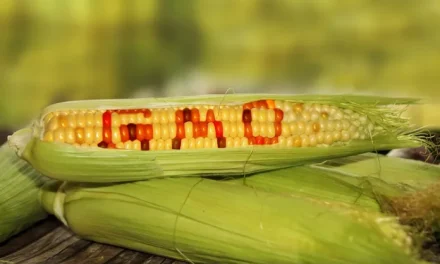
Court Dismisses Lawsuit Against Introduction of Genetically Modified Organisms2 min read


The Human Rights Court 1 has dismissed the suit filed by Food Sovereignty Ghana (FSG), Convention People’s Party, Vegetarian Association of Ghana and Goaso Kanyan Akuafo Kuo against the National Biosafety Authority (NBA) and 4 others over the introduction of Genetically Modified Organisms (GMO) products in the country.
The judgment comes after nine (9) years of legal tussle. The court presided over by Her Ladyship, Justice Barbara Tetteh-Charway delivering her judgment described the FSG’s suit as a ‘red herring’ since the plaintiffs in their application could not adduce evidence to show how their reliefs had a direct bearing on the commercialization of cowpea in the country.
Chief Executive of the National Biosafety Authority, Eric Okoree expressed satisfaction with the outcome of the hearing and pledged that the authority will continue to publish information every step of the way.
“This case has been in court since 2015 and we’re happy with the way it has ended. All the evidence provided by Food Sovereignty Ghana didn’t meet the understanding and acceptance of the court hence it was dismissed. This is a big victory. For us, established by the Biosafety Act, Act 831, we’re happy because we’ve always walked along the path of the act. The court ruled that the authority should make sure to regulate the system and ensure that no Genetically Modified Organisms infiltrates the market without approval and we seek to uphold that,” he said.
The court directed the NBA to undertake continuous public sensitization through the media and other publications, and liaise with the relevant regulatory authorities to finalize the guidelines for labelling of GM products before any commercialization in the country, publish all relevant data on importation of GM cowpea on the Biosafety Clearing House and also to label all GM products on the market to enable the public to make informed choices.
Meanwhile, Communications Director for Food Sovereignty Ghana, Edwin Kweku Andoh Baffour says although their case was thrown out, this is still a win for Food Sovereignty Ghana and the nation as a whole.
“As a representative of FSG, I receive the judgment with mixed feelings but on the whole, we’re happy that the court recognises that individuals have the right to choose what they eat. We wanted to expose the fact that most Ghanaians don’t know about GMOs and so this is a win for Food Sovereignty Ghana,” he said.
The Council for Scientific and Industrial Research for the past 12 years has been conducting research and trials of the BT Cowpea in Ghana under guidelines set by the National Biosafety Authority. The NBA, working with the Food and Drugs Authority (FDA), has already issued guidelines on labeling GMOs in Ghana which were developed with all stakeholders including Food Sovereignty Ghana.


















